Experts
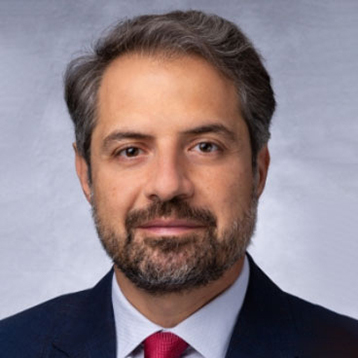
Elias Jabbour, MD
Professor, Department of Leukemia
The University of Texas MD Anderson Cancer Center
Houston, USA
Elias Jabbour, MD, is professor of medicine, Department of Leukemia, at The University of Texas MD Anderson Cancer Center (MDACC), Houston, Texas. He graduated from the Saint Joseph University School of Medicine, Beirut, and joined the Hotel Dieu de France University Hospital as a resident. He pursued a fellowship in hematology-oncology at the Gustave Roussy Institute, France. In 2003, he joined MDACC as a fellow in the Department of Hematology/Leukemia and Stem Cell Transplantation. He later joined the faculty in the Leukemia Department as assistant professor.
Dr Jabbour is actively involved in research in both acute and chronic forms of leukemia. He was involved in clinical trials that led to the approval of several drugs in chronic myeloid leukemia (CML), myelodysplastic syndromes (MDS), and acute lymphoblastic leukemia (ALL). He actively assisted in developing chemotherapeutic and biologic agents in leukemias and contributed to the development of others. Dr Jabbour has designed more than a dozen clinical trials assessing new combinations for the management of de novo ALL, elderly ALL, and relapsed/refractory disease. Of note, he developed a protocol that has shown significant improvements in survival rates for patients with Philadelphia chromosome-positive ALL. In addition, he developed another innovative treatment approach for these patients by combining blinatumomab, a bispecific monoclonal antibody, with ponatinib, offering a chemotherapy-free regimen that it is hoped will further increase cure rates. Another area on which he focused his research is elderly patients with ALL. The aggressive biology of the disease and elderly patients’ poor tolerance of intensive chemotherapy leads to low survival rates for this patient population.
Dr Jabbour is currently investigating an innovative strategy combining new monoclonal antibodies such as inotuzumab ozogamicin, a conjugated anti-CD22 antibody, and blinatumomab with minimal chemotherapy. If successful, such strategies will likely increase the cure rates of adult patients with ALL to the high level achieved in pediatric patients.
Dr Jabbour has taken an active role in the medical community, participating in numerous scientific meetings. He has authored or co-authored numerous publications (>550 peer-reviewed publications) and abstracts, and serves as a reviewer for many scientific journals. He has received several prestigious awards, among them merit awards from the American Society of Clinical Oncology (2005, 2006, 2007) and the American Society of Hematology (2005, 2006, 2007). He also received several other honors, including the Kimberly Patterson and Shannon Timmons fellowships and the highly coveted Celgene Future Leader in Hematology (2007) and Young Investigator in Hematology (2016) awards.
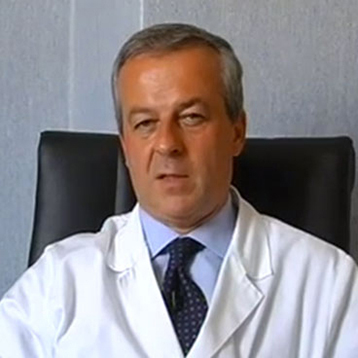
Franco Locatelli, MD
University of Rome, IRCCS Ospedale Pediatrico, Bambino Gesù, Italy
Prof Franco Locatelli is head of the Department of Paediatric Haematology and Oncology, IRCCS Bambino Gesù Children’s Hospital in Rome, and full professor of pediatrics at the Sapienza University of Rome in Italy. He leads the largest program of childhood allogeneic hematopoietic stem cell transplantation (HSCT) in Italy and was recently appointed president of the Italian Higher Council of Health (Consiglio Superiore di Sanità), the technical scientific advisory body to the Ministry of Health. He graduated in medicine and surgery from the University of Pavia in Italy, where he also obtained a specialization in pediatrics and hematology. In 2005, he received the Gold Medal for Merit in public health by the president of the Italian Republic.
Prof Locatelli is an expert in childhood hematologic and oncologic malignancies. He was the president of the Italian Association for Pediatric Hematology-Oncology from 2004 to 2006, and served as chairman of the EWOG-MDS consortium from 2005 to 2011. Currently, he coordinates the national protocols for children with newly diagnosed acute myeloid leukemia and relapsed acute lymphoblastic leukemia. He has implemented in Italy the first-in-human academic studies on children with CD19+ lymphoid malignancies using second-generation retroviral chimeric antigen receptor (CAR) T cells and on children with GD2+ neuroblastoma.
Prof Locatelli is also involved in the development and validation of gene therapy approaches in patients with thalassemia and sickle cell disease and he has extensive experience in running phase I/II clinical trials. He is the author or co-author of 1,070 peer-reviewed articles published in international journals and he has an overall impact factor above 5000 and an H-index of 99 (Scopus source).
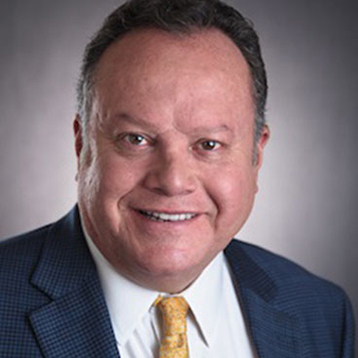
Rafael Fonseca, MD
Mayo Clinic, Arizona
Rafael Fonseca, MD, is the Chief Innovation Officer, Getz Family Professor of Cancer, Distinguished Mayo Investigator. He earned his MD at Universidad Anahuac, Mexico. He completed a residency in internal medicine at the University of Miami, FL, and a fellowship in hematology and medical oncology at Mayo Graduate School of Medicine, Rochester, MN. He was named a clinical investigator for the Damon Runyon Cancer Research Fund. He is a visiting healthcare fellow at the Goldwater Institute.
Dr Fonseca’s practice has focused on the diagnosis and treatment of plasma cell disorders and leading the multiple myeloma team in its effort to develop a better understanding of the disease and its impact on patients. In his laboratory, Dr Fonseca has led his team of researchers in concentrating on the genetic nature of the clonal cells of plasma cell disorders, myeloma bone disease, prognostic markers, and development of new therapies for the disease.
Throughout his training and career, Dr Fonseca has received numerous awards and honors, including the Damon Runyon-Walter Winchell Clinical Investigator Award, and the International Waldenström Macroglobulinemia Research Award. Most notably, he is a Mayo Clinic Distinguished Investigator, the highest academic distinction given to investigators at his institution. Dr Fonseca holds memberships and serves in positions for organizations such as the American Society of Clinical Oncology, American Society of Hematology, American Association for Cancer Research, and the International Myeloma Society. His research has been funded by the National Cancer Institute (R01, P01, SPORE), the Leukemia & Lymphoma Society, the Multiple Myeloma Research Fund, and the Damon Runyon Cancer Research Fund. Dr Fonseca serves as reviewer and in editorial capacities for medical publications including Blood, Lancet, Nature Medicine, Cancer Cell, Leukemia, and the New England Journal of Medicine, among others. He has given many national and international presentations as a visiting professor, and has authored numerous articles (over 300), book chapters, editorials, abstracts, and letters.
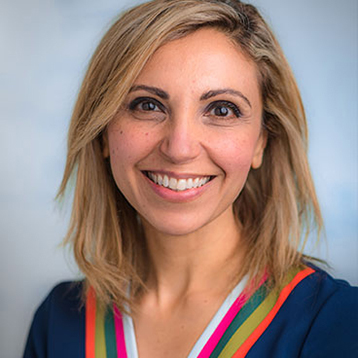
Irene Ghobrial, MD
Dana-Farber Cancer Institute
Dr Irene Ghobrial is currently a professor of medicine at Dana-Farber Cancer Institute (DFCI), Harvard Medical School, and the Lavine Family Chair for Preventative Cancer Therapies. She is also an associate member of the Broad Institute of the Massachusetts Institute of Technology and Harvard University. She is director of the clinical investigator research program at DFCI, director of translational research in the Department of Multiple Myeloma, director of the Center for Prevention of Progression, and co-leader of the Dana-Farber/Harvard Cancer Center lymphoma and myeloma program. Dr Ghobrial received her MD from Cairo University, Egypt. She completed a residency in internal medicine at Wayne State University, Detroit, MI, and then moved to the Mayo Clinic in Rochester, MN, to train as a hematology-oncology fellow.
Dr Ghobrial’s laboratory and clinical studies focus on identifying and developing effective therapeutic interventions for precursor conditions of myeloma (monoclonal gammopathy of undetermined significance and smoldering multiple myeloma). This can only be achieved by defining genomic and epigenomic markers that are associated with disease progression, microenvironmental changes that affect tumor progression to myeloma, and mechanisms of immune evasion in disease progression. The focus of her research is to identify novel biomarkers of disease progression and help develop potentially curative therapies in the pre-malignant phase that exploit the immune microenvironment in the bone marrow. She developed a large, patient-empowering observational study for these precursor conditions (the PCROWD study) and recruited over 3,000 patients. She is also the principal investigator of the first screening study for multiple myeloma in the US, the PROMISE study. This trial is currently screening 30,000 individuals at high risk of developing myeloma, including those of African American descent or those with first-degree relatives with myeloma.
Dr Ghobrial is a well-funded investigator who received continuous National Institutes of Health funding over the last 12 years and foundation collaborative grants, including the Leukemia & Lymphoma Society SCOR program and Stand Up To Cancer grants dream team. She has over 250 publications in many prestigious journals and has presented and led many national and international meetings on myeloma. She is the recipient of the Robert A. Kyle Award for Waldenström’s macroglobulinemia, the Ken Anderson Young Investigator Award, and the Mentor of the Year Award at DFCI.
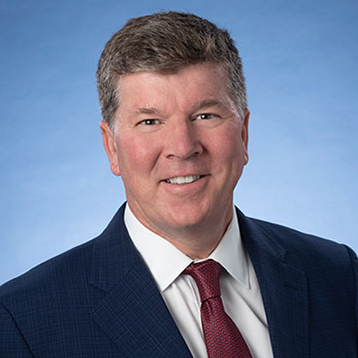
Keith Stewart, MBChB, MBA
University of Toronto, University Health Network, Mayo Clinic
Dr Keith Stewart is Vice President, Cancer, at University Health Network in Toronto, Canada, and Director of the Princess Margaret Cancer Program. He is regional vice-president of Toronto Central South Regional Cancer Program, Ontario Health (Cancer Care Ontario), and holds the Richard H. Clark Chair in Cancer Medicine. He has served in several healthcare leadership roles across both research and clinical practice in Toronto and at the Mayo Clinic, where most recently he was director of the Center for Individualized Medicine.
Dr Stewart earned his medical degree at Aberdeen University Medical School, UK, and an MBA degree at the Ivey Business School, University of Western Ontario. He completed an internship at the Glasgow Royal Infirmary, UK; a residency in internal medicine at Queens University, Kingston, ON; a fellowship in hematology at the University of Toronto; and a fellowship in research at New England Medical Center in Boston.
Dr Stewart’s research focuses on the biology, genomics, and individualized treatment of multiple myeloma. He has over 30 years of sustained national funding for a laboratory research program in genomics and biology of myeloma, and has led numerous clinical trials of novel therapeutics for this disease from first-in-man to large practice-changing studies. A frequently invited speaker, Dr Stewart gives presentations on his research both domestically and internationally, and has authored over 350 journal articles, abstracts, and other written publications. He has served on the advisory and medical or scientific boards of many private and public institutions, including currently as a non-executive board member of Genomics England.
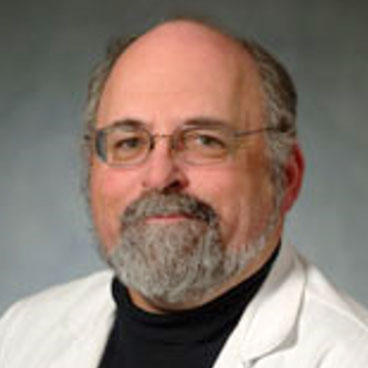
Corey J. Langer, MD, FACP
University of Pennsylvania Perelman School of Medicine, USA
Dr Corey Langer is a professor of medicine at the University of Pennsylvania, Perelman School of Medicine, where he serves as clinical director of thoracic oncology in the Abramson Cancer Center. He received his medical degree from Boston University and completed his residency in medicine at the Graduate Hospital, University of Pennsylvania, and his hematology/oncology fellowship at Presbyterian University of Pennsylvania and Fox Chase Cancer Center.
At the University of Pennsylvania, Dr Langer leads clinical research efforts in thoracic malignancy as part of the Interdisciplinary Thoracic Oncology Program and conducts research focused on the role of targeted therapy and immunotherapy in non-small cell lung cancer (NSCLC). He also co-directs the Thoracic Translational Center of Excellence, where he concentrates on the clinical end of bench-to-bedside projects. For the past 34 years, since completing his fellowship, Dr Langer has led or co-led over 140 clinical trials in both SCLC and NSCLC, as well as mesothelioma and head and neck cancer.
Dr Langer is co-chair of the Medical Oncology Committee for NRG Cooperative Oncology Group and serves on the core thoracic committees of both NRG and the Eastern Cooperative Oncology Group. He is a fellow of the American College of Physicians and a member of the American Society of Clinical Oncology, American Association for Cancer Research, and International Association for the Study of Lung Cancer (IASLC). Since 2016, he has served as editor-in-chief of the IASLC Lung Cancer News.
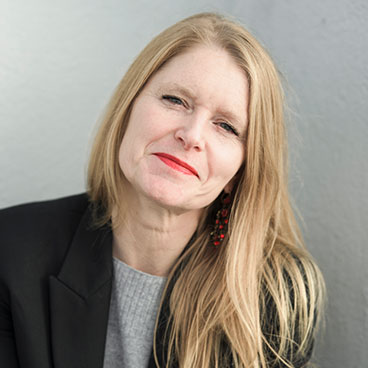
Solange Peters, MD, PhD
University Hospital of Lausanne, Switzerland
Prof Solange Peters is a full professor, chair of medical oncology, and chair of thoracic malignancies in the Department of Oncology, University Hospital of Lausanne, Switzerland. She received both her medical degree and PhD from the University Hospital of Lausanne. After completing her clinical education in medical oncology and molecular biology in Switzerland and Italy, Prof Peters specialized in thoracic tumors, lung cancer, and pleural tumors.
Prof Peters is currently in charge of teaching and patient care in thoracic malignancies at Lausanne University, where she is building a translational program in collaboration with the Swiss Federal Institute of Technology and the Ludwig Institute. Her main fields of interest are new biomarkers discovery and validation in preclinical and clinical settings, multimodality strategies for locally advanced non-small cell lung cancer, and cancer immunotherapy. Her current research projects mainly focus on innovative immunotherapy combinations and new immunomodulating treatments across thoracic malignancies. She acts as the local principal investigator (PI) for lung trials opened at Lausanne Cancer Centre and is co-PI of several other trials. Additionally, she acts as scientific coordinator and Foundation Council member of the European Thoracic Oncology Platform.
Prof Peters has authored numerous peer-reviewed manuscripts and book chapters, acts as associate editor of the Annals of Oncology, serves on the editorial board of several other oncology journals, and was the deputy editor of the Journal of Thoracic Oncology for 10 years. Prof Peters is active in the educational programs of the European Society for Medical Oncology, where she created the Women for Oncology Committee and for which she is the youngest president ever, serving from 2020–2022, and the International Association for the Study of Lung Cancer, where she was a previous member of the board of directors.
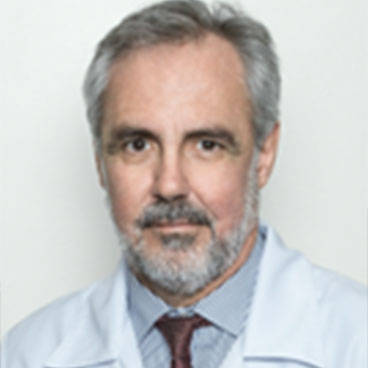
Carlos H. Barrios, MD
Oncology Research Center at Hospital São Lucas, PUCRS, Brazil
Dr Carlos H. Barrios is director of the Oncology Research Center at Hospital São Lucas, Pontifícia Universidade Católica do Rio Grande do Sul (PUCRS), Porto Alegre, Brazil. He is adjunct assistant professor of the William Harrington Latin American Program of the University of Miami School of Medicine, FL, and physician member of the Oncoclínicas Group.
Dr Barrios received his medical degree from PUCRS. He is board certified in internal medicine, having trained at the Hospital de Clínicas, Federal University of Rio Grande do Sul, Porto Alegre, and Jackson Memorial Hospital, University of Miami. He is also board certified in hematology and oncology, having trained at Barnes-Jewish Hospital, Washington University, St Louis, MO.
Dr Barrios is a member of the Executive Board of the Breast International Group and is very interested in clinical research, participating in over 250 industry-sponsored and academic clinical trials over the last 20 years. He has many abstract presentations in national and international congresses and has contributed significantly to the literature with numerous peer-reviewed publications. He has a strong interest in the development of international research collaborations and implementation of cooperative research infrastructures in Latin America. He is cofounder and current director of the Latin American Cooperative Oncology Group, which congregates more than 100 investigators in more than 70 institutions from 14 different countries in Latin America.




